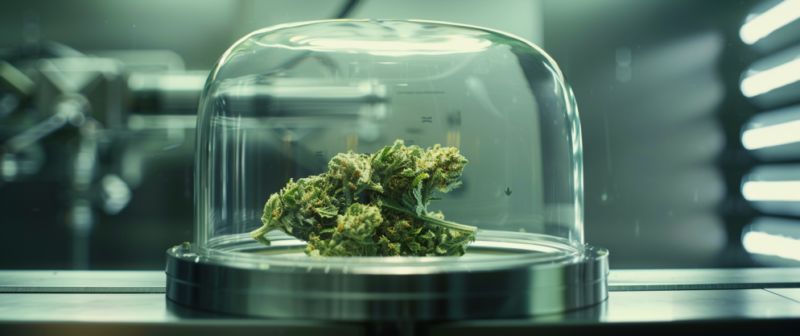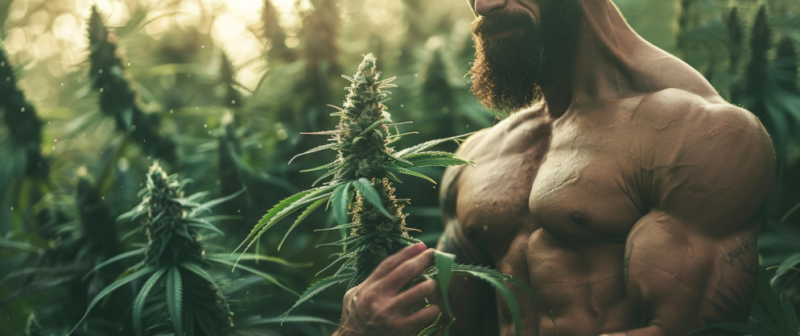Which is Better for Sleep, CBD or Delta 8
Struggling to get a good night’s sleep? You’re not alone. The big question is which is better for sleep, CBD or Delta 8? Many are using natural remedies like CBD and Delta 8 products for help.
Whether you’ve just heard about CBD and Delta Eight and want to know how they compare, or you’re already using Delta Eight or CBD and are looking for a new, different experience, there’s much to consider when choosing between these two cannabinoids.
Find out which one is the right choice for your bedtime routine!
What Is CBD?
CBD, or cannabidiol, is a chemical compound found in the cannabis plant, and its legality is supported by the Agriculture Improvement Act of 2018.
Cannabidiol (CBD) is a naturally occurring compound found in the cannabis plant. It is one of over 100 cannabinoids identified in cannabis and is the second most prevalent active ingredient after tetrahydrocannabinol (THC). Unlike THC, CBD is not psychoactive, meaning it does not produce a “high.”
Key Points about CBD:
- Sources: CBD can be extracted from both marijuana and hemp plants. The majority of CBD products on the market are derived from hemp, which is defined as cannabis containing less than 0.3% THC.
- Legal Status: CBD’s legal status varies by country and, in the United States, by state. The 2018 Farm Bill legalized hemp-derived CBD at the federal level, but individual states may have their own regulations.
- Uses: Many people use CBD products for general wellness and stress relief.
- Forms of CBD: CBD is available in various forms, including oils, tinctures, capsules, edibles, topicals, and vapes. The choice of form can depend on the condition being treated and personal preference.
- Mechanism of Action: CBD interacts with the body’s endocannabinoid system (ECS), which regulates various functions and processes, including sleep, mood, appetite, and immune response. Unlike THC, CBD does not bind directly to cannabinoid receptors but influences them indirectly.
- Side Effects: CBD is generally well-tolerated, but some people may experience side effects such as dry mouth, diarrhea, reduced appetite, drowsiness, and fatigue. It can also interact with certain medications.
- Regulation and Quality Control: The CBD market needs to be uniformly regulated, leading to variations in product quality. Consumers are advised to purchase CBD products from reputable sources that provide third-party lab testing results.
What Are The Uses Of CBD?
One of the potential benefits of CBD is its potential to alleviate symptoms of stress disorders, such as generalized stress disorder and social stress. Research suggests that CBD interacts with serotonin receptors in the brain, helping to regulate mood and reduce feelings of stress.
In terms of discomfort management, many individuals turn to CBD as a natural alternative to traditional discomfort medications. It is believed to have anti-microbial properties to may help reduce discomfort associated with arthritis, migraines, and muscle soreness.
As part of therapeutic medicine, CBD has shown promise in treating conditions such as epilepsy, PTSD, and insomnia. Its calming effects can promote relaxation and improve sleep quality, making it a valuable tool in managing various health conditions.
What Is Delta 8?
Delta 8, a variant of tetrahydrocannabinol (THC), is a chemical compound that functions as a cannabinoid, subject to specific regulations.
Delta-8-tetrahydrocannabinol (Delta-8-THC or simply Delta-8) is a naturally occurring cannabinoid found in the cannabis plant. It is an isomer of Delta-9-tetrahydrocannabinol (Delta-9-THC), which is the primary psychoactive compound in cannabis. While Delta-8-THC has psychoactive effects, they are generally considered to be milder than those of Delta-9-THC.
Key Points about Delta-8-THC:
- Chemical Structure: Delta-8-THC and Delta-9-THC are chemically similar, with the primary difference being the location of a double bond in their chemical structures. This slight difference significantly impacts their psychoactive effects and stability.
- Sources: Delta-8-THC is found in tiny amounts in cannabis plants. It is often derived from hemp, where it can be converted from cannabidiol (CBD) through a chemical process.
- Legal Status: The legal status of Delta-8-THC is complex and varies by region. In the United States, it exists in a gray area. The 2018 Farm Bill legalized hemp and its derivatives, but some states have explicitly banned Delta-8-THC. The DEA has also indicated that synthetic cannabinoids are illegal, which could apply to Delta-8-THC derived through chemical conversion.
- Psychoactive Effects: Delta-8-THC produces a milder high compared to Delta-9-THC. Users report that its effects are less intense, providing a smoother, clearer-headed experience with less paranoia.
- Forms of Delta-8-THC: Like other cannabinoids, Delta-8-THC is available in various forms, including edibles, tinctures, vapes, and concentrates.
- Side Effects: Possible side effects include dry mouth, red eyes, fatigue, and sometimes dizziness or changes in heart rate. It is essential to use Delta-8-THC responsibly since its effects can vary from person to person.
- Regulation and Quality Control: The Delta-8-THC market is less regulated than the CBD market, which can lead to product quality and purity variations. Consumers should look for products that have been third-party tested to ensure safety and potency.
What Are The Uses Of Delta 8?
Many people turn to Delta 8 as a natural alternative to traditional discomfort medications. Its anti-microbial properties can help alleviate chronic discomfort without the risk of addiction or harmful side effects. Delta 8 has shown promise in reducing stress levels and promoting a sense of calm and well-being.
Individuals dealing with high-stress situations or insomnia often find relief through the relaxation-inducing effects of Delta 8. Whether taken through oils, edibles, or vapes, this cannabinoid offers a gentle way to unwind and find inner peace.
Which is Better for Sleep, CBD or Delta 8?
Determining whether CBD or Delta 8 is better for sleep involves considering various factors, including their effects on health, the risk associated with each substance, and evidence supporting their use.
-
Comparison Of CBD And Delta 8’s Effects On Sleep
When comparing the effects of CBD and Delta 8 on sleep, it’s essential to consider how each interacts with the cannabinoid receptors in the brain and nervous system to promote relaxation.
Research has shown that CBD interacts with receptors such as CB1 and CB2, which are part of the endocannabinoid system responsible for regulating various body functions, including sleep. By modulating these receptors, CBD may help reduce stress and enhance overall sleep quality.
Similarly, studies have indicated that Delta 8, a less researched cannabinoid but with psychoactive properties, may also impact sleep patterns through its interaction with the endocannabinoid system. This compound’s potential to alleviate discomfort and induce a sense of calmness could contribute to improved sleep duration and efficiency.
-
Factors To Consider In Choosing Between CBD And Delta 8 For Sleep
When choosing between CBD and Delta 8 for sleep, factors include the required dose, potential adverse events, and individual consumer preferences.
Regarding dosage, CBD typically requires higher doses compared to Delta 8 for the desired sleep benefits. This may influence the choice based on sensitivity or preference for higher or lower dosages. Potential adverse events also play a crucial role in decision-making, as some individuals may experience different side effects with each compound. Understanding these risks is essential in selecting the most suitable option for sleep improvement. Individual consumer preferences, such as preferred consumption method or taste, can also steer the decision toward either CBD or Delta 8 products.
How Do CBD And Delta 8 Affect Sleep?
CBD and Delta 8 can affect sleep by interacting with the endocannabinoid system, crucial in managing stress and other physiological processes.
-
CBD’s Impact On Sleep
When stress levels are lowered, the body is better able to enter a state of calmness, which is essential for falling asleep quickly and staying asleep throughout the night. This improved relaxation not only aids in achieving a more restful sleep but also positively impacts the overall quality of sleep experienced.
Further, CBD interacts with the endocannabinoid system in the body, which plays a crucial role in regulating various bodily functions, including sleep. By influencing this system, CBD can help maintain a healthy sleep-wake cycle, leading to more consistent and rejuvenating sleep patterns.
-
Delta 8’s Impact On Sleep
Delta 8’s impact on sleep is linked to its interaction with cannabinoid receptors in the brain, which helps promote relaxation and improve sleep quality.
When Delta 8 connects with the cannabinoid receptors in the brain, it triggers a cascade of effects that contribute to a state of calm and tranquility. This interaction not only aids in reducing stress levels but also significantly regulates the sleep-wake cycle. Delta 8 can help individuals achieve more profound and restful sleep by modifying neurotransmitters and signaling pathways.
Are There Any Side Effects?
While CBD and Delta 8 offer potential benefits for sleep, it’s important to consider any side effects and associated health risks.
-
Side Effects Of CBD
Some common side effects of CBD include nausea and fatigue, which can impact overall health and well-being.
Depending on the individual’s sensitivity to CBD, these side effects may vary in intensity and duration. While some people may experience mild symptoms that subside quickly, others may face more prolonged discomfort that affects their daily routine. Users must be aware of these potential effects and consult a healthcare professional if they persist.
If not managed properly, nausea can lead to loss of appetite and dehydration, which can further exacerbate existing health issues and weaken the immune system. Similarly, fatigue can disrupt sleep patterns and hinder productivity, leading to a cycle of exhaustion and reduced quality of life.
-
Side Effects Of Delta 8
Delta 8 may cause side effects such as paranoia, confusion, and changes in heart rate, presenting certain risks to users.
Paranoia can lead to intense feelings of fear or suspicion, making the user feel anxious and uneasy. Confusion may result in impaired decision-making and cognitive function, affecting daily activities. Changes in heart rate can range from palpitations to irregular rhythms, potentially leading to cardiovascular complications. It is crucial for individuals consuming Delta 8 products to be aware of these potential side effects and monitor their body’s response closely.
What Are The Recommended Dosages For Sleep?
The recommended dosage for sleep using either CBD or Delta 8 varies, and consumers must find the optimal dose that suits their needs.
-
Recommended Dosage For CBD For Sleep
The recommended dosage of CBD for sleep generally ranges from 25 to 75 milligrams per day, depending on the consumer’s needs and response.
When incorporating CBD into your nightly routine, it’s advisable to begin with a lower dose and gradually increase it until the desired effect is achieved. Some individuals may find relief with 25mg, while others may need closer to 75mg. Keeping track of how you feel after each dose adjustment is essential.
Factors such as body weight, metabolism, and the severity of sleep issues can all play a role in determining the optimal CBD dosage. Consulting with a healthcare professional can also provide valuable insight into tailoring your CBD intake for improved sleep quality.
-
Recommended Dosage For Delta 8 For Sleep
For Delta 8, the recommended dosage for sleep typically ranges from 10 to 40 milligrams per day, tailored to the individual consumer.
Consumers must begin with a lower dose, such as 10 milligrams, and gradually increase until they find the optimal dosage that works best for their sleep needs.
- Some may find that a lower dose of around 10-20 milligrams is sufficient to improve sleep quality without causing grogginess the next day.
- Others may require a higher dose, closer to 30-40 milligrams to experience the desired effects.
Factors like weight, tolerance levels, and individual metabolism play a role in determining the ideal dose. Consulting with a healthcare professional can help determine the most suitable dosage for each individual.
Final Thoughts – Which is Better for Sleep, CBD or Delta 8
The choice between CBD and Delta 8 for sleep ultimately depends on consumer preferences and health considerations.
While CBD is widely known for its calming properties and potential to aid sleep, some individuals may prefer the milder effects and perceived euphoria associated with Delta 8. Factors such as desired onset time, dosage precision, and legal status also come into play when deciding between the two. Health considerations such as allergies, existing medical conditions, and potential drug interactions should be thoroughly evaluated before incorporating CBD or Delta 8 into one’s sleep routine.
Frequently Asked Questions
Is CBD more effective for sleep than Delta 8?
CBD is often considered the better option for sleep due to its calming and relaxing effects. However, some people may find Delta 8 more effective for their needs.
Can I use CBD and Delta 8 together for better sleep?
It is not recommended to mix CBD and Delta 8 for sleep as they both have strong sedative effects and may cause excessive drowsiness. It’s best to stick to one or the other.
How long does it take for CBD or Delta 8 to take effect for sleep?
The effects of CBD and Delta 8 for sleep can vary from person to person, but typically it takes 30 minutes to an hour for the effects to kick in.
Is it safe to use CBD or Delta 8 for sleep every night?
It is generally safe to use CBD or Delta 8 for sleep every night, but it’s best to consult with a healthcare professional before incorporating them into your daily routine.


